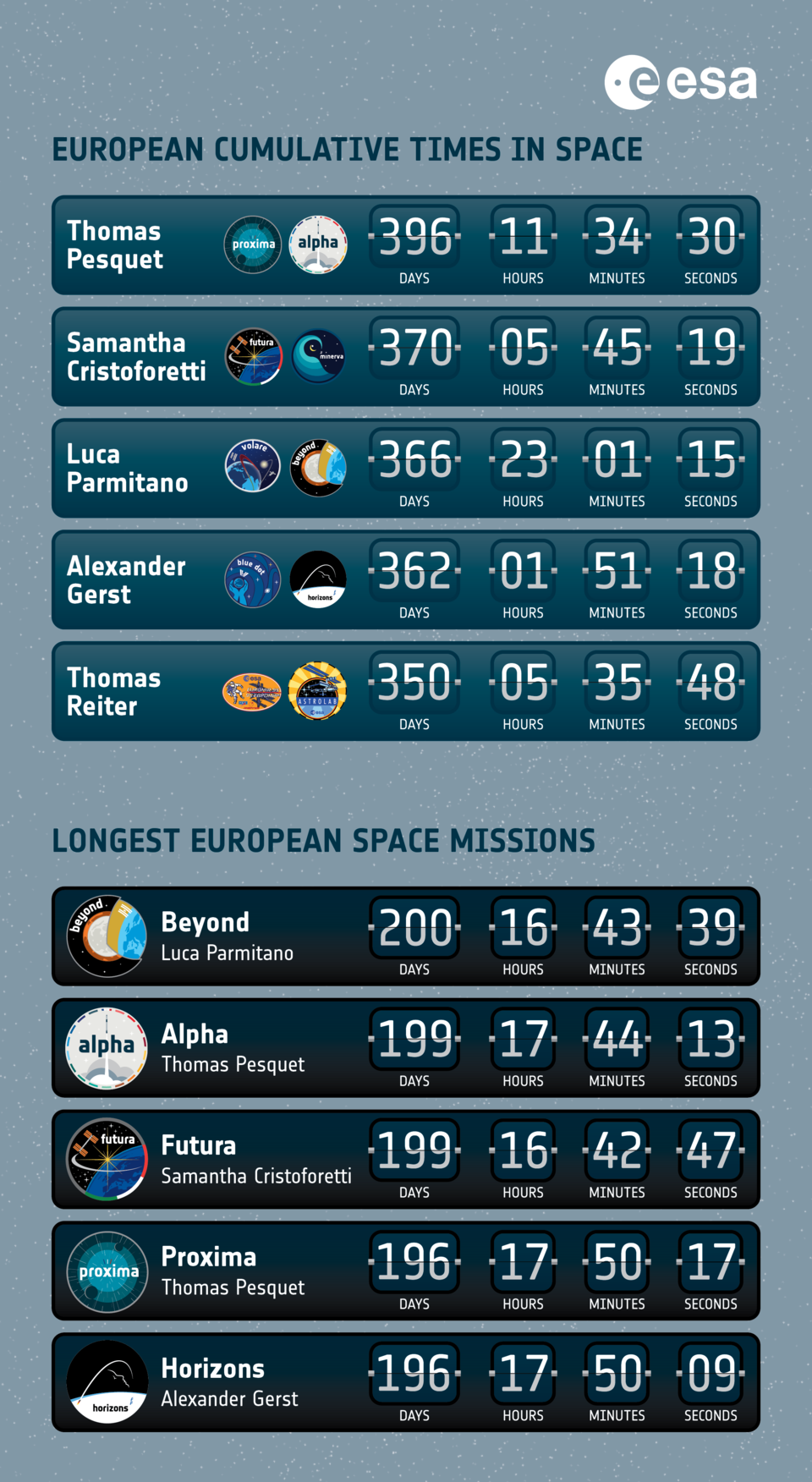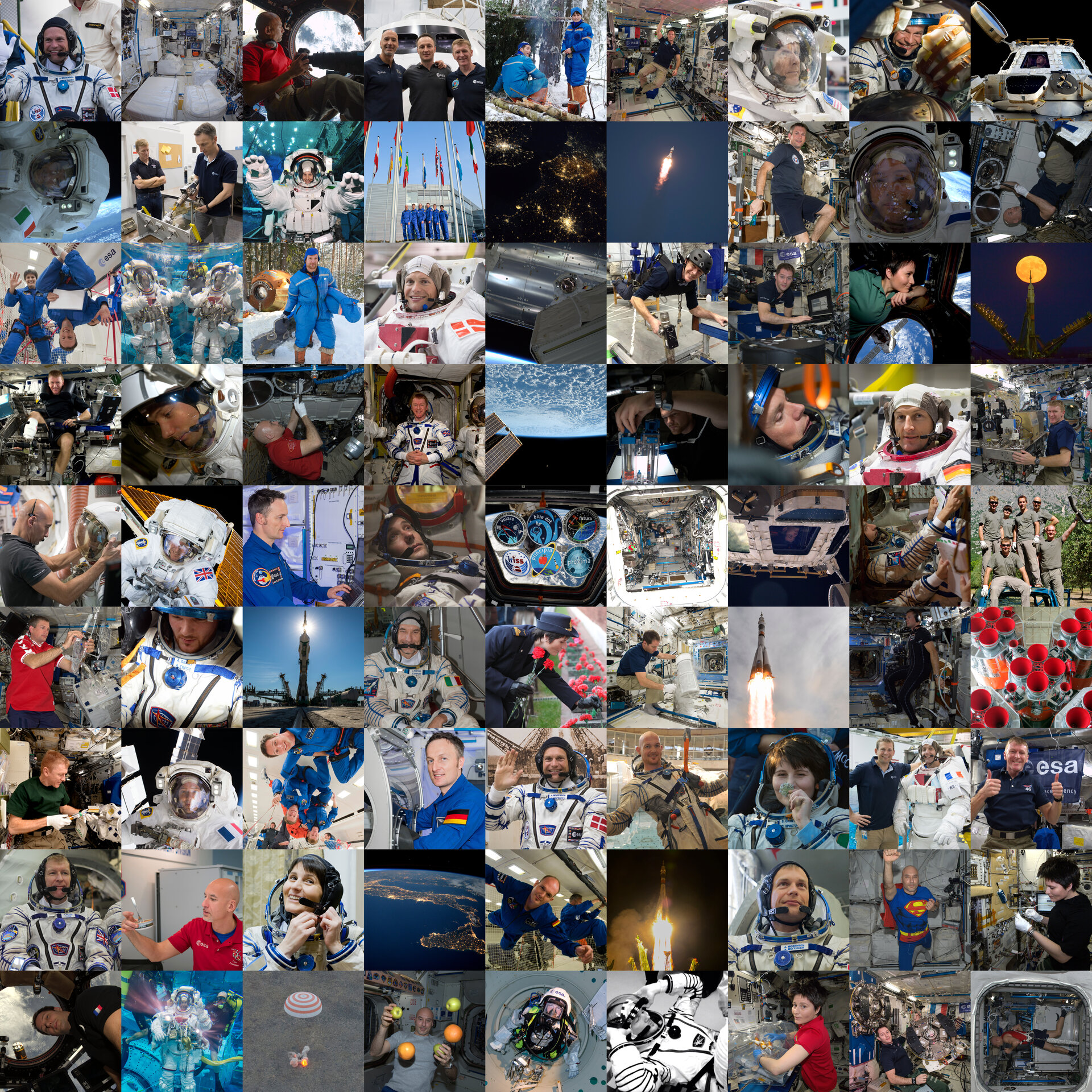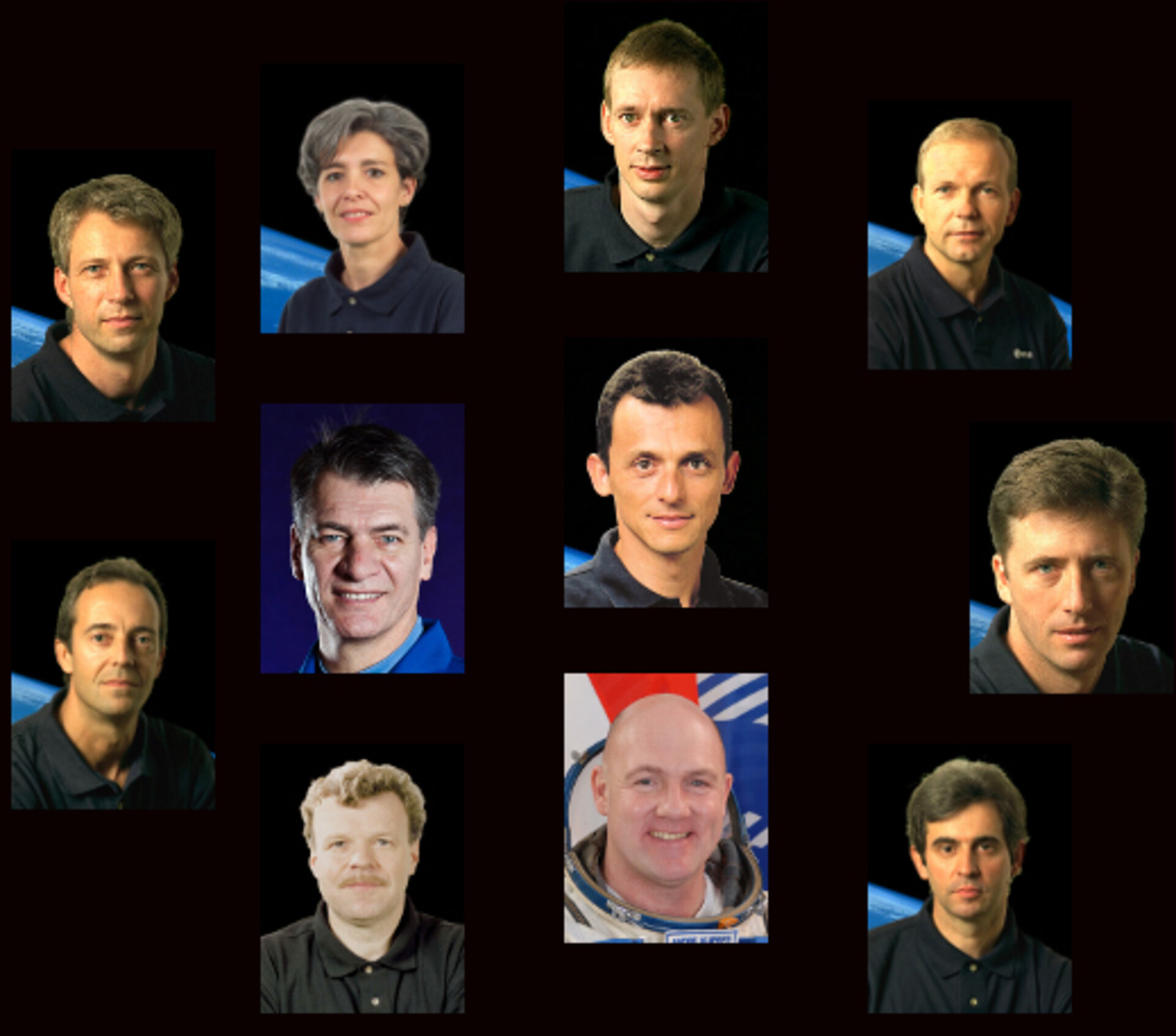The European astronaut corps
In 1998, ESA Member States participating in the International Space Station (ISS) programme decided to unite their respective astronaut teams with the existing ESA core team to form a single European Astronaut Corps. This integration process was completed in 2002.
The Corps currently consists of seven active members from Denmark, Germany, France, Italy and the United Kingdom. These astronauts were selected in May 2009 following a year-long recruitment campaign.
Six of these astronauts started their basic training at EAC in September 2009. A seventh, Matthias Maurer, formally joined ESA's astronaut corps in July 2015 – graduating from both basic astronaut training and pre-assignment training in 2018.
One of the aims of a united European Astronaut Corps is to afford ESA astronauts as much training as possible with the goal of accumulating as much expertise as possible for its astronauts thus making them valuable assets for space missions. This not only enhances ESA’s human spaceflight reputation but also increases the probability of ESA astronauts being assigned to a mission.

The experience gained by ESA astronauts in spaceflight operations is not only valued by their involvement during missions with on board operations, but also when not assigned to a mission. In this case, astronauts take up their duty supporting the mission from ground, e.g. taking charge of the communications with the space crews. When not assigned to a training or mission support, astronauts provide support to the development of ESA technology programmes, so-called collateral duties, as in the case of the development of Columbus and the Automated Transfer Vehicle (ATV).
Moreover, the members of the European Astronaut Corps are ambassadors for the benefits of spaceflight. The astronauts participate in countless public relations activities, conferences and scientific lectures, sharing their unique experience with the audience and thus shaping the overall attitude towards science in general and spaceflight in particular.






